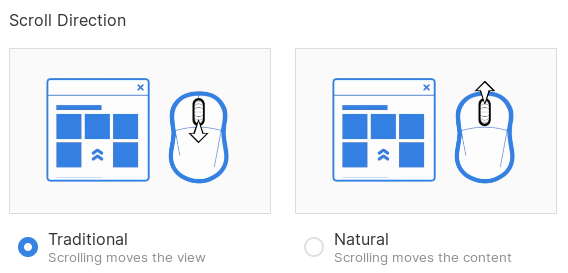183
you are viewing a single comment's thread
view the rest of the comments
view the rest of the comments
this post was submitted on 24 Sep 2023
183 points (96.9% liked)
Linux
62524 readers
142 users here now
From Wikipedia, the free encyclopedia
Linux is a family of open source Unix-like operating systems based on the Linux kernel, an operating system kernel first released on September 17, 1991 by Linus Torvalds. Linux is typically packaged in a Linux distribution (or distro for short).
Distributions include the Linux kernel and supporting system software and libraries, many of which are provided by the GNU Project. Many Linux distributions use the word "Linux" in their name, but the Free Software Foundation uses the name GNU/Linux to emphasize the importance of GNU software, causing some controversy.
Rules
- Posts must be relevant to operating systems running the Linux kernel. GNU/Linux or otherwise.
- No misinformation
- No NSFW content
- No hate speech, bigotry, etc
Related Communities
Community icon by Alpár-Etele Méder, licensed under CC BY 3.0
founded 6 years ago
MODERATORS

Traditional for both scroll wheels and trackpads (trackpads are emulating a mouse, you heathers!) And inverted Y for gaming.
I think trackpads emulating a mouse should be considered a poor implementation, a trackpad is different than a mouse and we should utilize that with the design. A trackpad is best imo when combined with gestures, almost as a hybrid between a typical touchscreen and mouse. For example pinching motions, two/three finger tapping, two handed use, etc are all options for a trackpad that don't work (or work poorly) on a mouse.
I used to use inverted Y, but it stopped feeling right at some point in the Xbox 360 era and I switched.
I think it was the first console gen where FPS really took off. Like there were FPS on PC for a long time before that, and Halo was pretty big on the Xbox, but the PS2 ones were all kind of clunky and experimental.
I think I only used inverted Y to start with because the only first person games I used to have were flight sims.
I used to play games with both inverted X and Y. But lately (last 10-15 years) inverted X was often not an option so I had to force myself to play both axis non-inverted. It took a few months but it feels natural now.
Inverted Y I get, but inverted X?
Explain yourself, weirdo.
That's literally the same principle. And yes, before you ask, it's dumb for both axes.
Up is up, down is down.
It's not the same principle for both axes though. I invert just the Y-axis. For me, left is left, right is right, up is "back" and down is "forward".
It is, if you consider the motion about the bottom part of the stick, when you push forward, that part moves backward. The same can be said about pushing right, and having the bottom going left.
Why would you want that? No idea, since even on planes the x axes are not inverted like that...
I see what you are saying about the bottom of the stick, but that isn't the mental model of the people who invert the Y-axis. So that principle doesn't really apply.
Consider it like plane controls. With the stick in a neutral position as pointing "up". Left and right are still left and right. But forward and back tilt the nose, which is forward, down and up respectively.
Nah a touchpad feels more like a smartphone display than a mouse, so "natural" scrolling it is. Inverted Y for gaming too. I think it depends on what you grew up with - playstation and Xbox don't use it per default but Nintendo (at least old consoles and games) does I think, so I cannot switch back to not inverted, it feels unnatural.
I consider trackpads to emulate the touch of the screen (so like a phone). So natural scrolling for me.